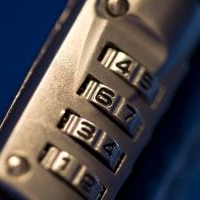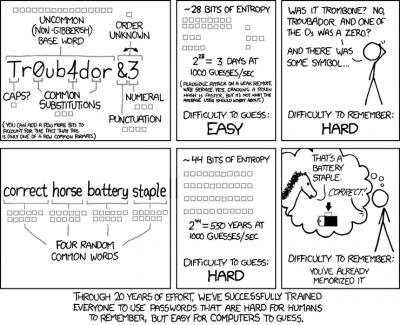Can Google Defeat the Need for Antiquated Password Security?

If you’re getting tired of remembering countless passwords—your mother’s maiden name, the street you grew up on, which pet was your favorite, or whether you used 3s in place of your E's—you’re not the only one. Password fatigue is real, and thankfully, help is on the way.
For years we’ve been told to mix up our passwords with varying combinations of upper and lowercase letters, numbers, and special characters, which isn’t a problem—except when being advised not to use the same password for everything. One of these “P@ssw0rd$!” may not be that difficult to remember, but juggling unique combinations for your email (personal and work), banking, coupon sites, retailers, etc., is next to impossible.
Oh, and don’t forget to change them regularly. More than likely, you’ll be required to do so.
Some serious math has been done to refute the supposed heightened security that this type of password creation actually provides, and some have even explained in a helpful cartoon how to relieve yourself of this daunting task.

But, shortly after publishing that cartoon, Ars Technica reported that a new Linux-based GPU cluster on five servers was able to perform an astounding 350 billion password guesses per second. Just how fast is that?
It's an almost unprecedented speed that can try every possible Windows passcode in the typical enterprise in less than six hours.
As someone who definitely needs to be concerned with the apparent worthlessness of passwords, as they’re relied on more and more everyday for the storage of, well, nearly everything—Google isn’t wasting time on improving passwords. They’re looking to remove the need for them.
Using USB-connectible tokens or even simply your smartphone, Google’s goal is to increase security by requiring, or in some ways allowing, users to log in to their services with items that would be on their person alone.
Representatives from Google recently told SmartPlanet that the measure is aimed at not just providing added security but also convenience. “Some more appealing form factors might involve integration with smart phones or jewelry that users are more likely to carry anyway.”
Even if this technology is destined to be hacked just as the undefeatable passwords of the olden days were, give Google credit for at least trying to make our lives a little easier. Remembering to wear my ring or carry my phone is a lot less intimidating than recalling what street I grew up on, and what ridiculous way I spelled it, and whether I put the exclamation point before or after it, and if I…
What’s your trick for keeping track of all your passwords? Would you wear an encrypted ring if it meant not having to remember them? Share your thoughts in the comments section below.

